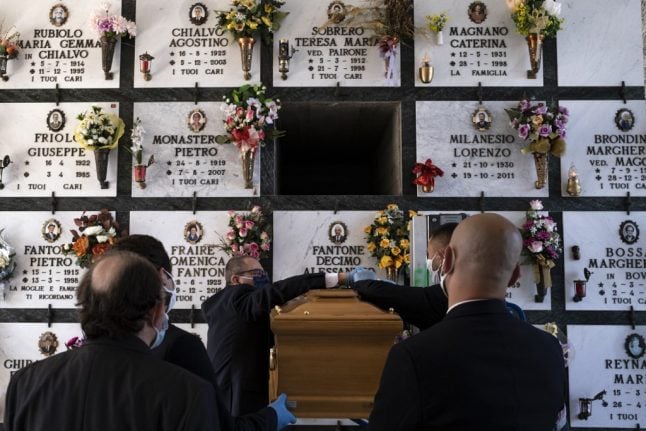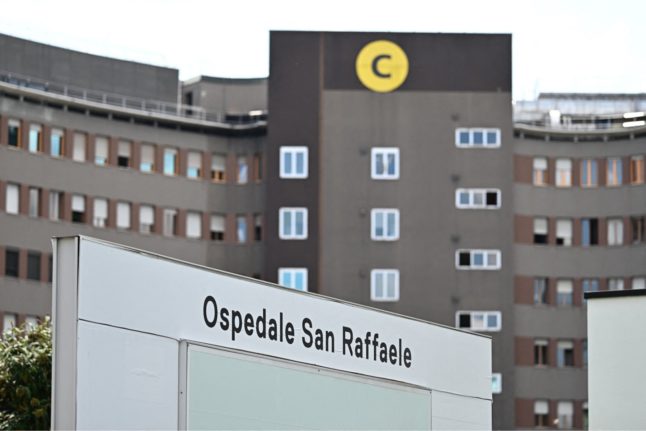The new data suggest that the death toll could be nearly double the official figure.
Italy's civil protection services attributed 12,428 fatalities to the virus by the end of March. But the state statistics agency Istat and the ISS public health institute said that another nearly 11,700 extra deaths needed to be accounted for in that span.
READ ALSO: What's the problem with Italy's official coronavirus numbers?
The number was derived by comparing Italy's total number of deaths between late February and the end of March to the statistical average for that period in the preceding five years.
From the day the first death from the new coronavirus was reported on February 20th until March 31st, the number of deaths across Italy rose from an average of 65,592 over 2015-19 to 90,946 in 2020, figures released on Monday showed.
Italy's official figures mostly count hospital deaths. Few of the elderly in care homes have been tested, and the number of deaths from the virus in the community is unknown.
The new data showed that 25,354 more people died across the country in those 40 days than the average for the same period between 2015 and 2019, an increase of 49.4 percent.
Over the 37 worst-affected provinces in the north and centre of Italy, deaths from all causes more than doubled compared to the 2015-2019 average.
In the hardest-hit province of Bergamo, there were more than six times as many deaths compared to the same period in previous years, with an increase of 568 percent. In Cremona deaths rose by 391 percent, in Lodi by 371 percent, in Brescia by 291 percent, in Piacenza by 264 percent and in Parma by 208 percent.
MAPS: Which parts of Italy have the fewest coronavirus cases?

Doctors visit a suspected Covid-19 patient in Bergamo, Lombardy. Photo: Piero Cruciatti/AFP
The data showed that 13,691, or 54 percent, of the 25,354 extra fatalities nationwide “are Covid-19 diagnosed deaths” included in Italy's official virus toll. That leaves 11,663 so-called excess deaths unexplained.
The most notable rise in mortality was among men aged 70-79, among which group deaths increased by about 2.3 times between February 20th to March 31st compared to the average for that period. Among men aged 80-89, it increased by nearly 2.2 times.
Istat and the ISS said in a joint statement that there were three possible explanations for the additional fatalities. One was that these people were never tested for the virus but actually had it when they passed away.
There is also “an indirect effect of the virus”, in which Covid-19 exacerbates an existing condition, such as kidney or other organ dysfunction, the statement said.
The third cause is the consequence “of an excessive stress on the healthcare system, especially in the more affected areas” of Italy, said the statement.



 Please whitelist us to continue reading.
Please whitelist us to continue reading.
Member comments